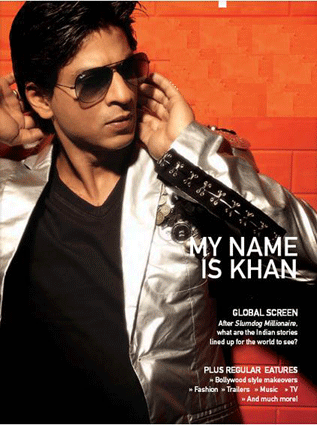
Anyone who is interested in issues of Islam in America must certainly go see the new Shahrukh Khan film My Name is Khan. Despite all of its Bollywood silliness and melodrama, the film is surprisingly discerning on the experiences of Muslims in American society. Though it is set almost entirely in the U.S. (beginning in San Francisco and ending in Georgia), this film will go down as one of the most important Bollywood movies Shahrukh Khan has ever done.
Most obviously of course, the film reminds audiences all around the world that Bollywood’s biggest star ever is in fact a non-violent Muslim (the film’s most repetitive line is “My name is Khan, and I am not a terrorist”). But it also does a number of other absolutely fascinating things, such as performing a reinterpretation of the Qur’anic Abraham-Ishmael story, and in a surprising turn, it spotlights the U.S.’s government abandonment of poor African-American communities. There are a number of very problematic tropes at play (the black “mammy” and “picaninny†figures, and African Americans as happily musical people), but the implications for understanding race and religion here are still surprisingly rich, not only on the racialization and profiling of Muslims in the U.S., but also on the interaction of immigrants and African Americans in the U.S. The film is especially prescriptive on the latter, ending in a black church community in Wilhelmina, GA!
I think there is plenty to learn and teach regarding the film before we turn into very harsh film critics of My Name is Khan. Bollywood has always, of course, relied on the repetition and recycling of common tropes in both creative and highly problematic ways. My Name is Khan deserves to be taken seriously as an insightful commentary on the so-called “problem†of Muslims in America.
Noora Rifaat
San Francisco, CA